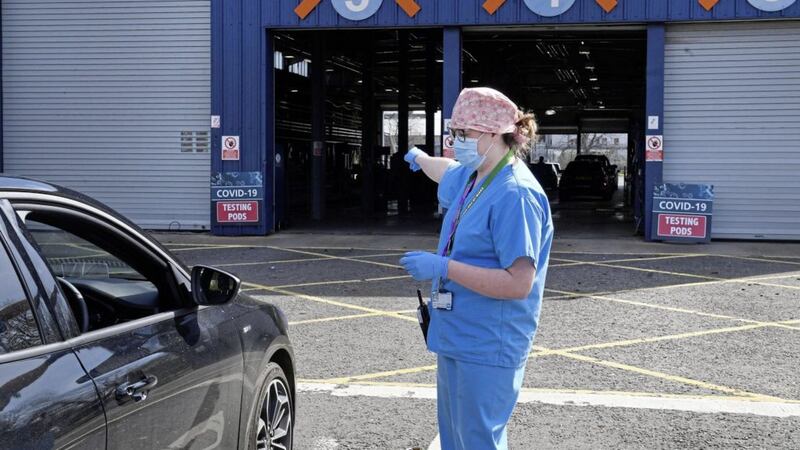WE are currently experiencing perhaps the most serious public health crisis in living memory. Our communities are in lockdown, friends and families have been separated and the strain on life as we’ve known it has been immense.
The shock to our systems has been rapid and it has been massive. Many world leaders have struggled to respond effectively to the crisis, so it comes as no surprise that our own Executive has experienced challenges. It is important now, however, that we harmonise our response and work together across departments and across these islands to tackle the threat we’re facing.
That means a coordinated approach to the procurement of testing equipment, PPE and ventilators. Because whatever the differences or disagreements on the approach to this crisis, Ministers must work together in the substantial interests of healthcare workers and those at risk. Our frontline staff need to be provided with the best equipment and they need to feel assured that they will receive whatever resource they need to fight this virus.
The SDLP called for a swift lockdown to prevent the spread of COVID19, to save lives and to minimise the impact of this virus. The approach taken by South Korea, where government and the private sector have cooperated on testing and tracing in an unprecedented way, and where the term ‘social distancing’ was first used, must be a model for action.
Opening our first drive-through testing centres, and the release of MOT centres for this effort by Minister Nichola Mallon, is welcome, building on the example of those countries that have been most effective.
However, while we deal with the immediate public health threat, we must also begin to plan for the recovery and reconstruction phase of this crisis. I welcome the unprecedented economic support packages that the British and Irish governments have put in place to manage the short term consequences of lockdown. But every day people are losing their jobs and businesses face closure.
The longer economic isolation continues, the longer it will take us to recover. A new pandemic poverty will have a substantial impact on the physical and mental health of those faced with unemployment and a reduction in taxable corporate incomes will restrict public spending power on recovery phase services. The way we do government and the shape of our public service must change fundamentally.
I firmly believe that a successful lockdown exit strategy will demand mass testing and tracing at a scale we’re nowhere close to operating at yet.
We need to maximise the advantages of being an island with a relatively small and dispersed population. That should enhance the effectiveness of a mass testing and tracing operation, allowing us to more easily identify outbreaks, isolate those at risk and plan for a phased recovery.
Put simply - if we don’t know the full scale of infection, transmission and recovery, we cannot safely exit the social and economic restrictions that we are currently under. That information is central to unlocking communities and allowing people to safely return to work.
This period of isolation will not last forever. Families will be reunited, friends will be able to socialise again and normality will return. But we’re not there yet. Our priority until then must be saving the lives of as many people as possible and fortifying our economy so that people can return to work as soon as it’s safe to do so.








